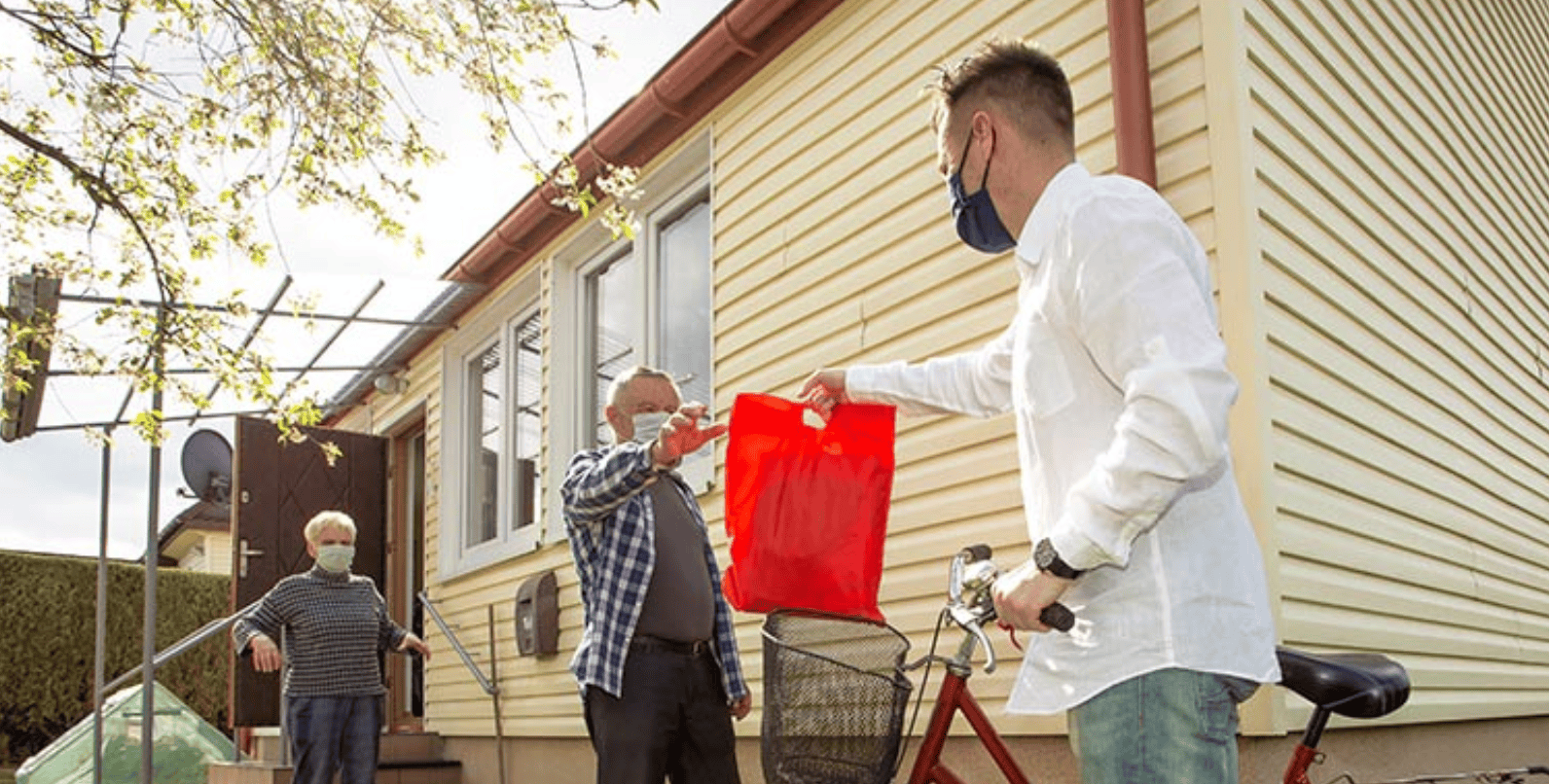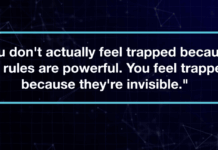When you turn on the news or read the headlines that constantly appear on your Facebook feed, it’s easy to start to think that human nature is inherently evil, angry, and selfish- and rightly so. It seems that every day we’re given another example of people disrespecting each other, harming each other, and discriminating against each other.
While the media tends to focus on the negative aspects of humanity, science tells us that humans’ propensity for kindness is just as strong. University of California San Diego psychologist Michael McCullough says that being kind is often something we take for granted, but “is as bred in our bones as our anger or our lust or our grief or as our desire for revenge,” [1].
Not only are we hard-wired to be kind, but there is a growing body of research to suggest that being kind actually makes us feel happier and improves our health.
Kindness Pays
According to Oxford anthropologist Oliver Curry, the basic reason why people are kind is because we are social animals.
“We’re kind because under the right circumstances we all benefit from kindness,” he says [1].
We also give kindness more value than any other trait or characteristic. In one study, psychologists put values into ten categories and then asked participants which was more important. Benevolence or kindness was rated the number one most important value, above hedonism, having an exciting life, creativity, ambition, tradition, security, obedience, seeking social justice, and seeking power [1].
Some experts believe that kindness is what separates humans from other animals, since it is our ability to reason that makes it possible for us to be kind to strangers or outsiders. McCullough says that humans are able to realize that there is not much difference between our close relatives and strangers, and that one day a stranger may be able to help us if we are kind to them no
The Neurobiology of Kindness
A 2013 study identified that humans have an innate tendency to be egocentric, but that there’s a part of the brain that recognizes a lack of empathy and corrects for it. This part of the brain is called the right supramarginal gyrus, and when it doesn’t function properly, or when we have to make a quick decision, our ability to be empathetic decreases significantly [2].
This part of the brain, which is located at the junction of the parietal, temporal, and frontal lobe, allows us to separate our perception of ourselves from others. When the neurons in our supramarginal gyrus become disrupted, however, this becomes more difficult, and we become more likely to project our own feelings onto others.
It also becomes difficult to put ourselves into someone else’s shoes, and this can be exacerbated when you are in a comfortable position. Basically, when you’re in a more agreeable situation, it can be more difficult for you to empathise with someone else’s suffering [3].
This part of the brain, which gives us the ability to nurture and love, also gives us the ability to dehumanize and exclude.
Brain Hare, and evolutionary anthropologist at Duke University, uses mother bears as an example. When they are feeding and nurturing their cubs, these areas of the brain are activated, but when a stranger approaches at that time, the bear’s threat mechanisms become activated in the same place, and she becomes aggressive and dangerous.
The same can be said for humans, and Hare points out that the current polarization of the world contributes to this “us versus them” mentality that breeds aggression.
“More isolated groups are more likely to feel threatened by others and they are more likely to morally exclude, dehumanize,” Hare said. “And that opens the door to cruelty.” [1]
Being Kind Makes You Happier
Not only does kindness actually come naturally to humans, but it is also good for our mental health.
Sonja Lyubomirsky, a psychology professor at the University of California Riverside has studied how kindness affects our happiness levels for the last twenty years, and has found that people are happier when they’re kind to others, more so than when they’re kind to themselves [1].
One possible reason for this is because being kind activates an area of the brain called the striatum. The striatum is activated by rewards in social situations, and researchers believe that activity in the striatum is responsible for that warm feeling we get from helping others [4,5].
Curry explains that because humans are social animals, we are happy to help our family members, friends, colleagues, and even strangers under some conditions, and his research suggests that people do in fact derive satisfaction from helping others.
“This is probably because we genuinely care about others’ welfare, and because random acts of kindness are a good way of making new friends, and kick-starting supportive social relationships,” he says [6].
He adds that performing acts of kindness may not change your life, but could nudge it in the right direction.
Being Kind is Good for your Health
Kindness does more than just benefit our mental health- it also affects us physically. Lyubomirsky points to a study of people with multiple sclerosis, in which participants noticed a decrease in pain when helping others [1].
She has also found in her own studies that kindness can affect your genes, and doing more acts of kindness can turn down the genes that trigger inflammation, as well as increase the number of antiviral genes you have [1].
Other research has shown that people who are perpetually kind have 23 percent less of the stress hormone, cortisol. Elevated cortisol levels have been linked to a number of physical health problems including heart disease, obesity, diabetes, and digestive problems [7,8].
Being kind can also lower your blood pressure. According to Dr. David R. Hamilton, when you perform an act of kindness, oxytocin, aka the feel-good hormone, is released in your body. Oxytocin causes the release of a chemical called nitric oxide, which dilates the blood vessels and decreases your blood pressure. For this reason, kindness has a “cardioprotective” effect in your body [7].
Finally, if you want to live longer, being kind can get you there. Research has found that people over 55 who volunteer regularly for two or more organizations have a 44 percent lower chance of dying early, even after filtering out for other contributing factors like physical health, smoking, and many more [7].
It Doesn’t Take Much
The good news is, you don’t have to do grandiose acts of kindness to reap these rewards. Even just small acts like opening a door for someone, letting another vehicle in front of you in a traffic jam, or smiling at someone as they pass you on the sidewalk, can make you feel happier and more connected to the world around you.
Even just spending money on someone else can make you happier, so when you’re feeling down perhaps buying a small gift for a friend will cheer you up [9].
Of course, there’s always the chance that your act of kindness could be returned one day, but even if it isn’t, you will still benefit from being kind to others- whether it’s to your friends and family, or to complete strangers.
From theheartysould.com
Disclaimer: We at Prepare for Change (PFC) bring you information that is not offered by the mainstream news, and therefore may seem controversial. The opinions, views, statements, and/or information we present are not necessarily promoted, endorsed, espoused, or agreed to by Prepare for Change, its leadership Council, members, those who work with PFC, or those who read its content. However, they are hopefully provocative. Please use discernment! Use logical thinking, your own intuition and your own connection with Source, Spirit and Natural Laws to help you determine what is true and what is not. By sharing information and seeding dialogue, it is our goal to raise consciousness and awareness of higher truths to free us from enslavement of the matrix in this material realm.
 EN
EN FR
FR



























Being kind to others does make me happy but I have noticed that animals are capable of empathy and kindness too I think that animals are being greatly underestimated both emotionally and also concerning the level of their intelligence. I saw a very spooky video yesterday a boxer dog went straight up to a little hidden camera and looked at it trying to fathom out what it was and to our surprise it worked it out and showed that by coming back and putting a soft toy in front of it, unfortunately I did not think to get the link But I am seeing animals do all sorts of things I either never noticed before or else they have somehow evolved significantly.